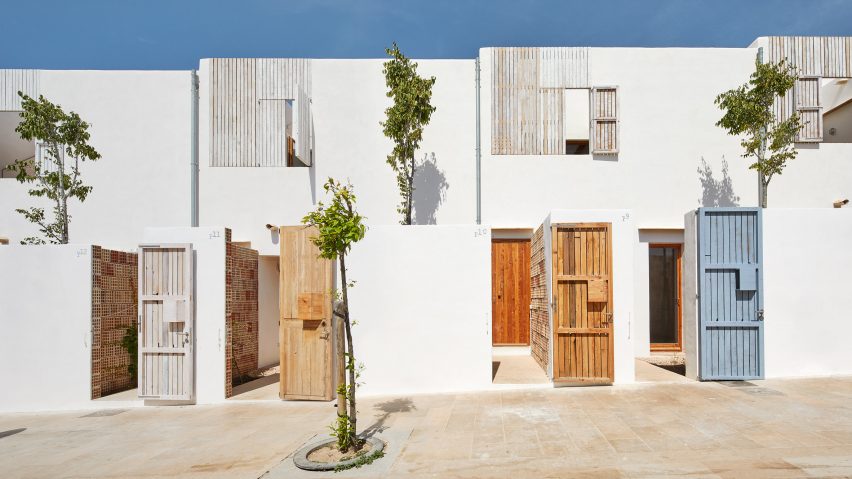
Life Reusing Posidonia was a prototype for "hyper-local architecture" on the Balearic islands
Next in our Social Housing Revival series we examine Life Reusing Posidonia – a group of 14 dwellings on the Mediterranean island of Formentera designed by architects at the Balearic Social Housing Institute using locally sourced materials such as dried seagrass.
Completed in 2017, Life Reusing Posidonia is a multi-award winning project consisting of 14 publicly protected, low-cost homes in Sant Ferran de ses Roques, an inland town in central Formentera – one of the Balearic islands.
Civil-servant architects at the Balearic Social Housing Institute (IBAVI) created the social housing project as a prototype to demonstrate how using locally sourced, natural materials can reduce a building's energy consumption while also positively investing in the local economy.
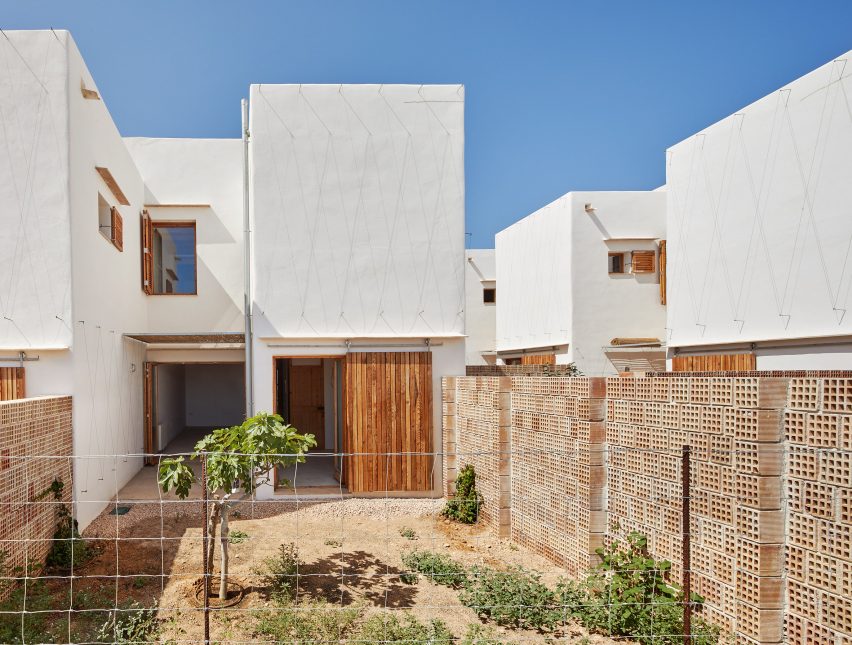
According to the European Commission, which funded the project through its LIFE programme for environmental initiatives, the housing was "awarded to local people in vulnerable situations, either socially disadvantaged or on low incomes".
The IBAVI architects aimed to reduce carbon-dioxide emissions during construction by 50 per cent, as well as achieve a 75 per cent reduction in post-occupancy energy consumption and a 60 per cent water consumption reduction.
They mapped out the embodied carbon and the energy required to transport every material considered for the project, looking to the island's natural resources for sustainable building materials.
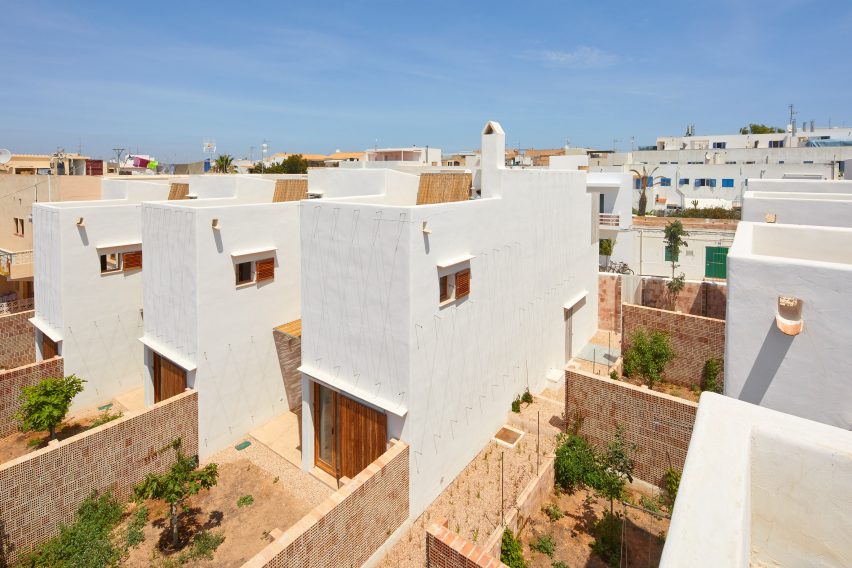
Formentera's juniper trees and shrubs are protected, while the island's sandstone stores are severely depleted. As a result, IBAVI focused on posidonia – a plentiful endemic seagrass that washes up on Mediterranean shores.
Combined with other carefully chosen materials, posidonia was applied as thermal insulation in each interconnected dwelling.
The seagrass did not require any artificial treatment thanks to its abundance of sea salt, which acts as both a preservative and biocide.
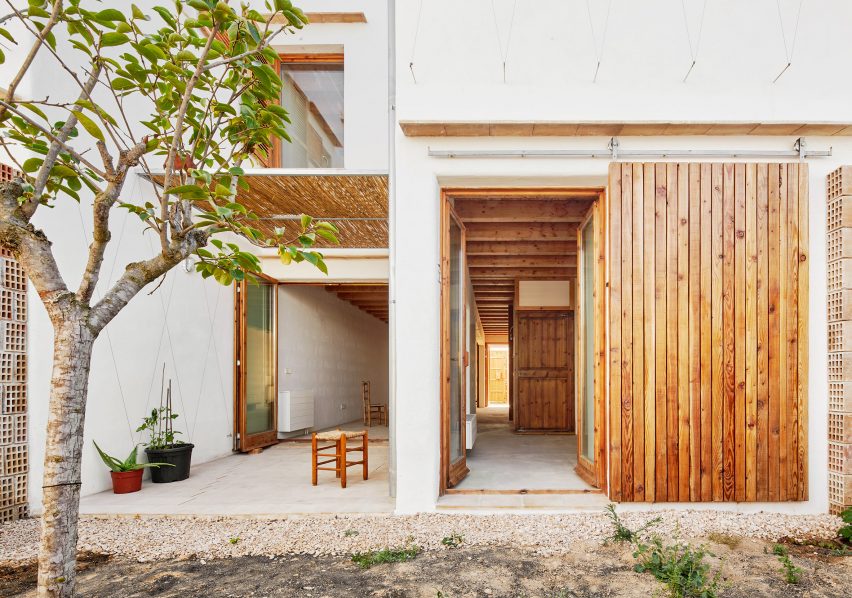
Local labourers hand-dried the posidonia during the summer of 2014, which meant spreading the grasses out in layers ranging between 5- and 10-millimetres in thickness and exposing them to the harsh Formentera sun for full days at a time.
Once dried, the posidonia was packed into recycled construction palettes fitted into the roof of each home to create insulation.
IBAVI was informed by both the appearance and energy performances of local vernacular architecture when designing the homes and analysed the performances of previous architecture projects to determine how to construct the Life Reuising Posidonia housing.
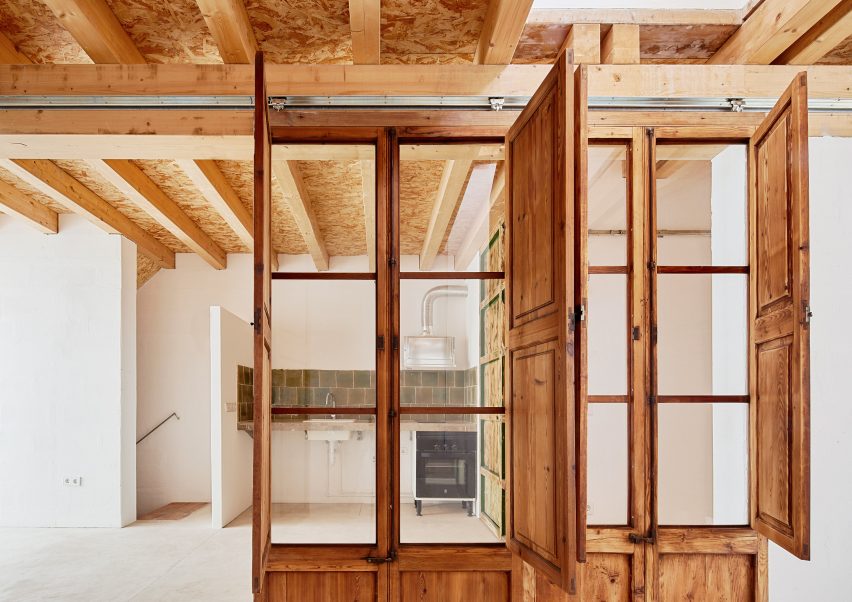
Each blocky, rectilinear building was organised with two street-facing facades, which creates cross-ventilation within each dwelling and passively cools the interiors during the summer months.
Homes on both the ground and first-floor levels of the buildings have individual outdoor spaces in the form of courtyards and roof terraces respectively.
South-facing, clerestory windows – which can be shuttered during hotter months – feature on the upper-level homes, providing them with passive solar heating during winter.
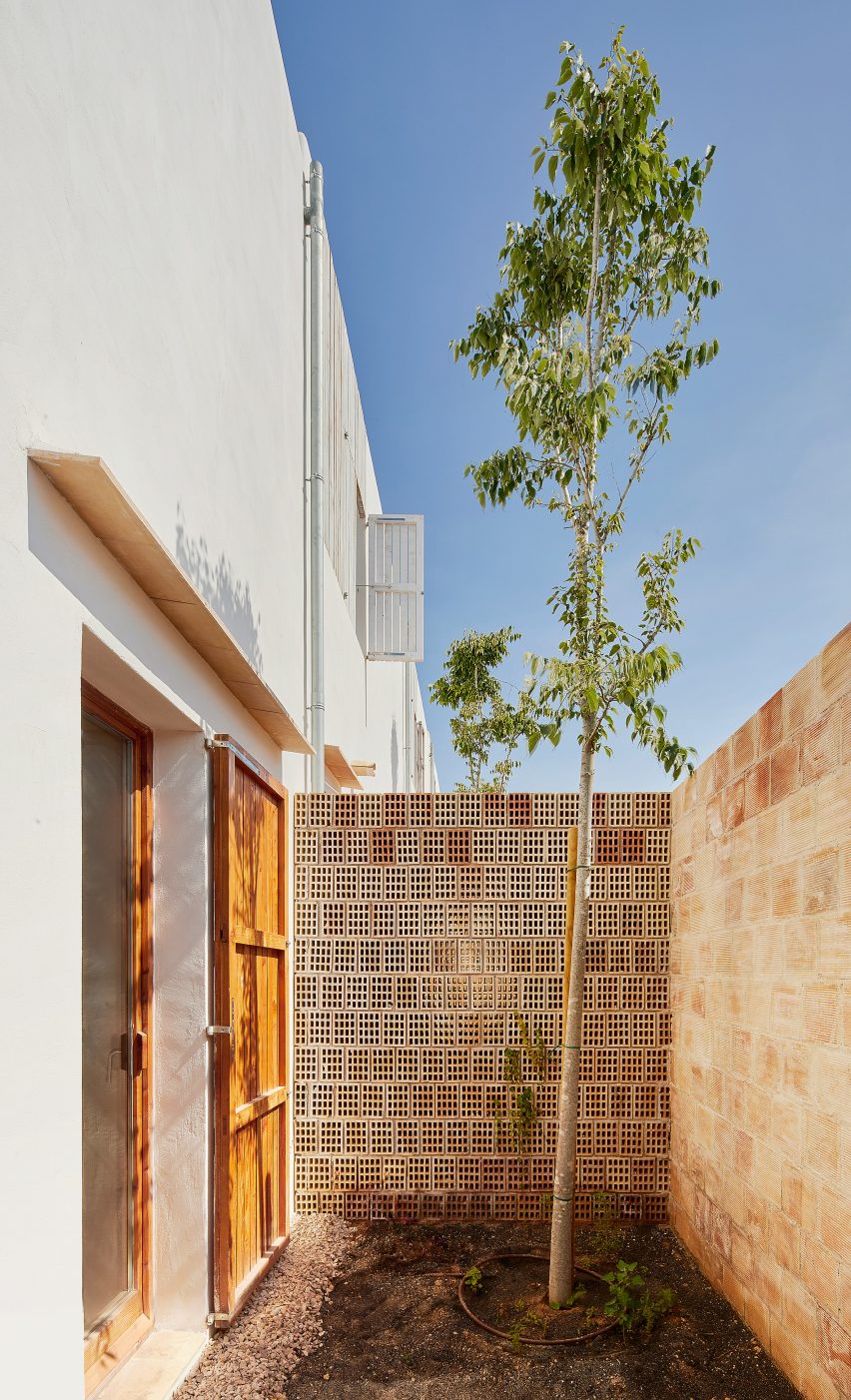
The houses were clad in bricks fired in a biomass mortar kiln. Every wooden door and window featured throughout the project was recycled from previous buildings.
Austrian glued-laminated timber rafters feature in the interiors – a less carbon-intensive material than concrete. Cork boards were also used as acoustic roof panels.
Developed as a pilot project, Life Reusing Posidonia was created to determine the cost of a multi-family housing complex that meets the requirements proposed by IBAVI's Guide to Environmental Measures for Building in the Balearic Islands.
The LIFE programme found that the project met its ambitions on post-occupancy energy use and water consumption and exceeded its target on embodied carbon, cutting construction-related emissions by 60 per cent. It also created 41 jobs for workers living in Formentera or the neighbouring island of Ibiza.
"The project had a significant social component from the very beginning," said the programme, which presented Life Reusing Posidonia with its Award for Environment in 2021.
"Through this paradigm, indebted to 'think global, act local', we propose a hyper-local architecture model, in which each project becomes a map of the territory's resources," stated the Life Reusing Posidonia website explaining the project's objectives.
"This approach allows us to relate the environmental issue with the cultural tradition of each region, achieving not only the prevention of global warming and an improvement in air quality, [but also the] recovery of the landscape quality of cities."
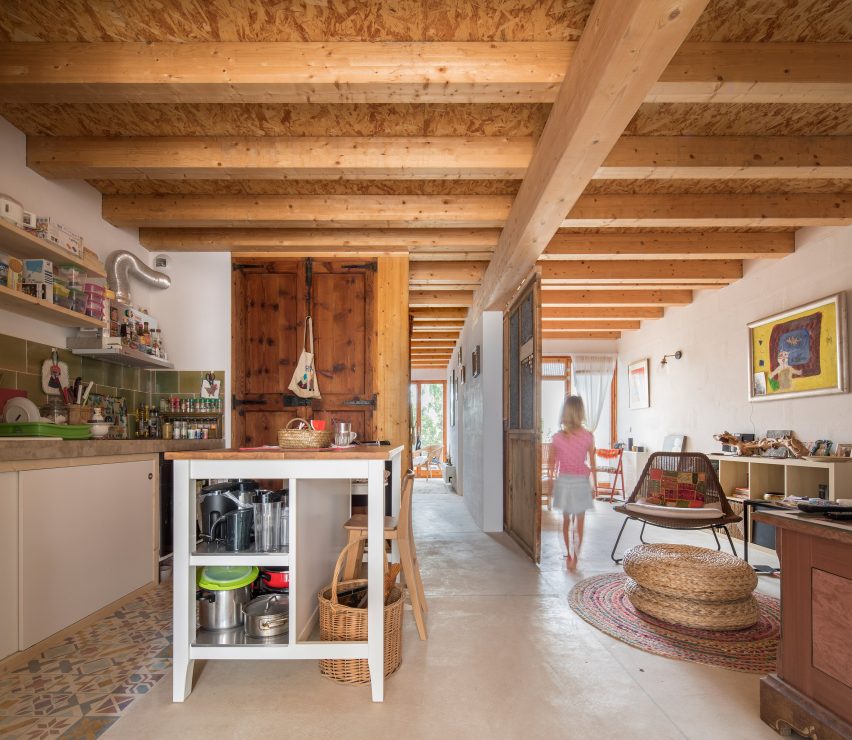
As well as the 2021 LIFE Award for Environment, the project won the 2018 FAD prize for architecture and was shortlisted for the 2019 EU Mies van der Rohe Award.
Since Life Reusing Posidonia, IBAVI has designed a large number of similar projects across the Balearic Islands that apply the same methodology, looking to local materials to create architecture.
For example, the institute has completed social housing in Mallorca built from locally quarried load-bearing stone.
The photography is by José Hevia unless otherwise stated.
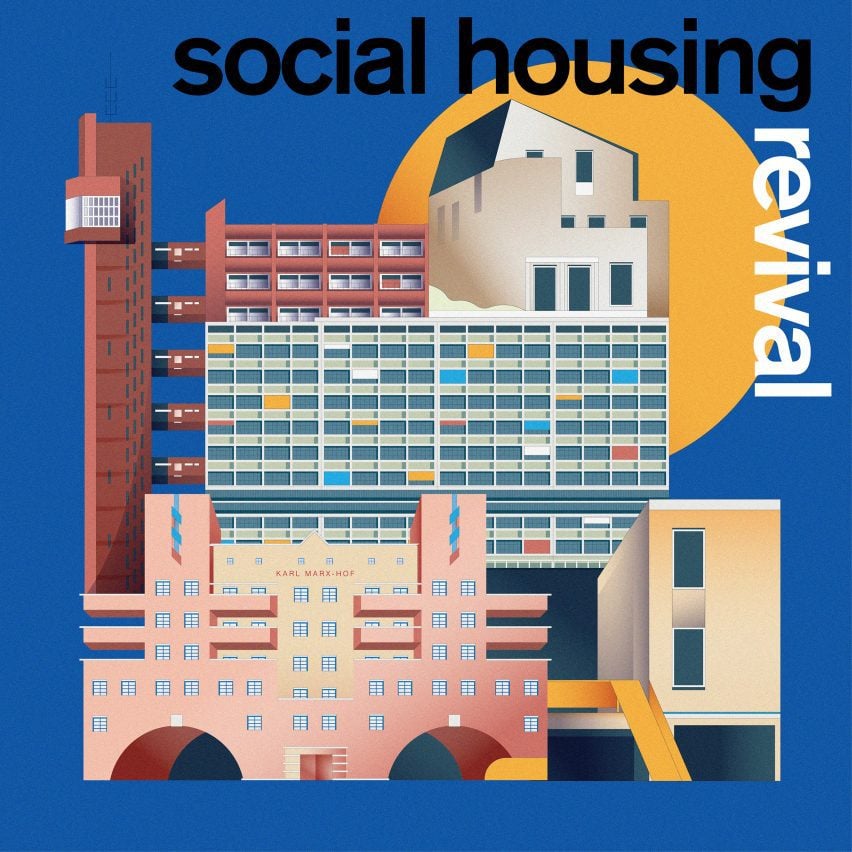
Social Housing Revival
This article is part of Dezeen's Social Housing Revival series exploring the new wave of quality social housing being built around the world, and asking whether a return to social house-building at scale can help solve affordability issues and homelessness in our major cities.